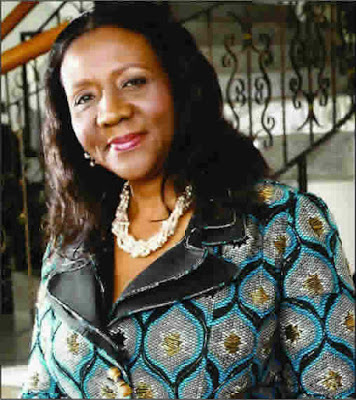Orakwusi seeks establishment of maritime advocacy group to drive workable policies
Chairman of the Shipowners Forum and the Chief Executive of Morbod Group, Barrister Margaret
Orakwusi, has called for the establishment of a maritime advocacy group that would be responsible for working to convince government on the importance and need to implement policies that can drive the maritime sector effectively in Nigeria.
Orakwusi, has called for the establishment of a maritime advocacy group that would be responsible for working to convince government on the importance and need to implement policies that can drive the maritime sector effectively in Nigeria.
Mrs Orakwusi made the call while delivering a paper titled “Maritime Industry As A Socio-Economic Enabler” at the 2018 World Maritime Day celebration, which held at the Eko Hotels in Lagos recently.
She also noted the need to ensure a unified policy for Nigeria that captures the maritime sector and the port industry as a single entity.
She said: “An establishment of a “Maritime Advocacy Group” should be in place with the responsibilities of examining and reviewing the policy from time to time with the changes in technology and provide strategies and framework for effective implementation of the policy.
“The group will be the one to tactically be requesting the government to give the Political Will to strict implementation of the numerous programmes and policies, so that Nigeria and Nigerians can begin to derive the huge benefits inherent in the industry.”
Orakwusi added that “The group will provide a document as a guide and position in form of a roadmap to create pathfinder that is capable to deliver, and this will drive maritime economy and the industry.”
Speaking on factors required to improve the maritime industry in Nigeria, Orakwusi, in her paper, noted that in spite of the resources in Africa, Nigeria inclusive, the continent had depended too much on importation, with poor performance in exports.
Her concern was on the fact that Nigeria, like other Sub-Saharan Africa countries, export mainly raw commodities and in turn pay heavily for importing finished goods from such raw commodities.
Her words: “Africa has been noted for playing a very marginal role in world trade. Its share
of global exports is 2.4 per cent, with Sub-Saharan Africa accounting for just 1.7per cent. Yet, for these countries themselves, world trade in fact plays a major role.
of global exports is 2.4 per cent, with Sub-Saharan Africa accounting for just 1.7per cent. Yet, for these countries themselves, world trade in fact plays a major role.
“In many parts of Africa, including Nigeria, foreign trade—measured in terms of imports and exports of goods and services—represents more than 50 per cent of GDP. This frequency means a great dependency on imports, not adequately balanced by corresponding exports.
“Less than 1 per cent of African exports were in the form of manufactured goods (the lowest percentage of any region in the world). Imports of manufactured goods from the European Union (EU), China, and the United States alone were nearly double the volume of African exported manufactured goods.
“Africa imported 14 per cent of the total global agricultural trade (the highest percentage (the highest percentage of any region in the world). Raw commodities accounted for nearly 80 per cent of all African exports, with oil representing close to 60 per cent of that total.”
On the overall in her presentation, Orakwusi called for concerted efforts and proper implementation of existing policies to drive the maritime industry to its full capacity where it can provide jobs in its various sub-sectors as well as boost the economic fortunes of Nigeria.

